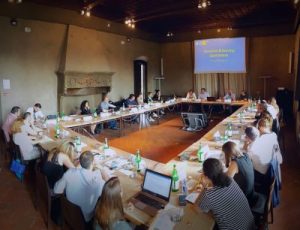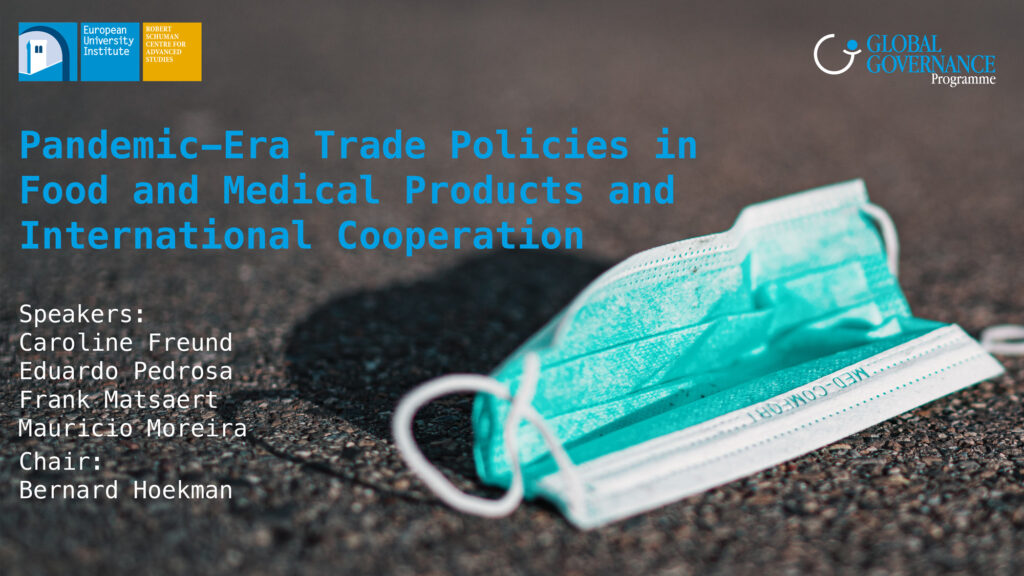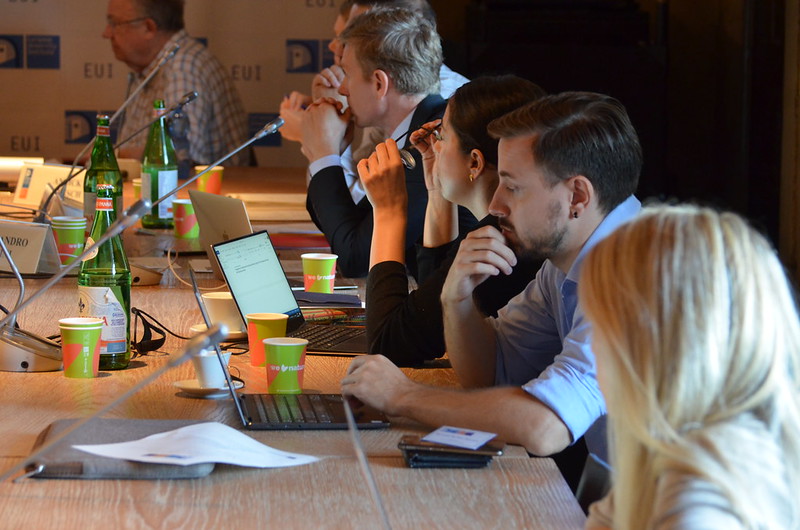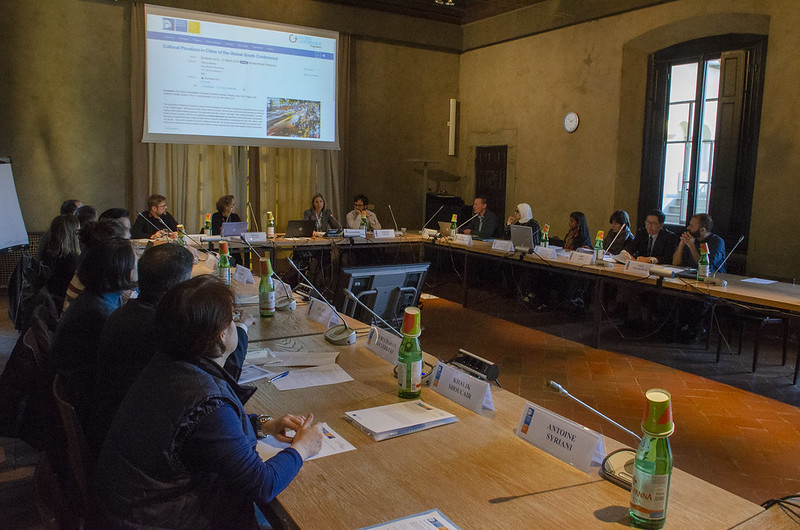New World Challenges

In the post-1989 period, important changes have occurred in the organisation of the world economy and of world politics more broadly. The new global (dis)order is characterised by both interdependence and mutual vulnerability among world regions and nation-states. The intensification of linkages and connections driven by technology, trade, investment, aid, and the mobility of people and ideas is transforming states and societies around the world.
The period of uncontested American hegemony is waning; a new multipolar international system is emerging, underscored by the eclipse of the G7/G8 of western powers by the G20. The growing weight of countries such as China, India and Brazil points to a relative decline in the power and influence of the ‘West’, especially within the international political economy. Demands for the supply of public goods at both the regional and international level are rising, but significant – and in some cases rising – barriers to their provision confound policymakers.
The European Union (EU) is drawn into a web of global governance as it tries to shape – and is also shaped by – international regimes, bilateral and multilateral agreements that comprise today’s patterns of transnational governance.
Research and Policy
Research conducted at the Global Governance Programme aims to identify the medium- and long-term challenges that the world faces, and possible ways to address them.
Global thinkers and leaders, academics and senior officials, constitute the pool of experts on whom the Programme can draw for inspired and cutting- edge debates on the problems the world currently faces. The Programme fosters dialogue between the worlds of research and policy in an objective, evidence-based manner, and seeks to contribute robust and critical thinking to important questions of policy and institutional design.
The Programme has been represented at meetings hosted by the European Union Institute for Security Studies (EUISS) to discuss a global foreign policy and security strategy for the EU. It also hosts conferences, seminars, and workshops on Europe’s external relations that bring together scholars and policymakers. In April 2016, for example, the Programme hosted a workshop on ‘China’s Rise and Europe’s Response’, a critical issue for Europe’s international relations. Speakers explored policy areas in which there has been a convergence of perspectives and policies between the EU and China, and issues on which there continues to be disagreement and discord. Individual panels were devoted to exploring the security, economic, political and normative dimensions of EU-China relations. In June 2017, 2018 and 2019 three conferences on ‘Terrorism and Security Governance’ were held in Florence and co-sponsored by NATO’s Public Diplomacy Division.
The Programme regularly organises academic and policy workshops that address major challenges related to the governance of culture and diversity in Europe and the world today. Among these challenges are resurgent nationalism, racism and populism, the related othering of migrants, disputes over historical memory, the implications of Brexit. In May 2018, a policy workshop was held with participants working on the new European Agenda for Culture at leading international organisations such as the European Parliament, the European Commission, and the European External Action Service.
Similarly, in May 2017, a workshop on ‘EU International Cultural Relations: a Strategic Approach‘ was organised to explore the role of culture in EU diplomacy. In spring 2018, a policy workshop, hosted by the European Commission Coordinator on Combatting Antisemitism Katharina Schnurbein, on ‘Addressing Rising Antisemitism in Europe’ discussed ways to increase the acknowledgment of Antisemitism as a societal problem. This year, in March 2019 the Programme held a large conference which discussed cities emerging as regional centres of power in the ‘Global South’, focusing on major urban centres in Asian, African, and Latin American countries at different stages of the nation building process.
The Global Governance Programme is also regularly represented in events and debates on trade and investment at the World Trade Organisation (WTO), the United Nations Conference on Trade and Development (UNCTAD), the International Trade Centre (ITC) and leading think tanks. It acts for example as the knowledge partner for the International Centre for Trade and Sustainable Development (ICTSD)/World Economic Forum (WEF) Expert-15 group on trade and regulatory cooperation, which brings together leading scholars and practitioners. In September 2016 and 2018 the Programme hosted in Florence for the first time the World Trade Forum in collaboration with World Trade Institute.
In June 2020 an online dialogue presented findings from the joint project with the University of St. Gallen’s Global Trade Alert initiative and the World Bank monitoring trade policy measures used by governments around the world to expand domestic supplies of medical and food products.
The Programme also serves as a venue for offline deliberations between senior trade and economic development officials, including WTO Ambassadors and managers of international agencies. It maintains strong ties to Geneva-based international organisations, and in 2015 it was selected as the only European venue to reflect on the first 20 years of the operation of the WTO Appellate Body.
Explore Further: Latest Policy Dialogues
Pandemic-Era Trade Policies in Food and Medical Products and International Cooperation
Held on 5 June 2020, this webinar presented results to date from the project monitoring trade policy measures used by governments around the world to expand domestic supplies of medical and food products during the COVID-19 crisis.

‘Terrorism and Security Governance’, 21 June 2019
On 21 June a discussion titled ‘Terrorism and Security Governance’ involving both well-known academics in the field as well as officials from the European Commission, NATO, and Europol took place.

‘Cultural Pluralism in Cities of the Global South’, 20-21 March 2019
On 20-21 March 2019 a conference which discussed cities emerging as regional centres of power in the ‘Global South’ was organised by Prof. Anna Triandafyllidou, Prof. Peggy Levitt, Dr. Jeremie Molho and Nick Dines.

